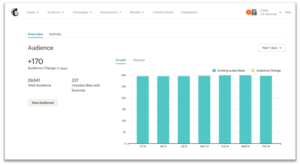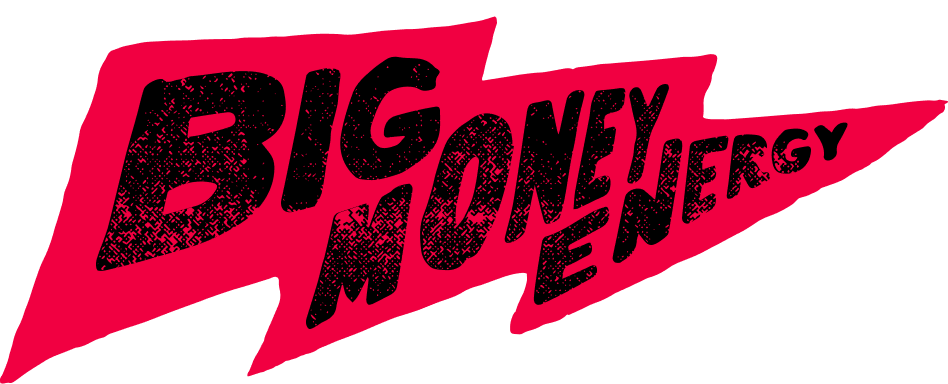
Could your next business idea be as simple as collecting quarters for candy and pennies for pretzels?
Running a successful vending machine business is a great way for people with low startup capital to start building wealth.
And if you buy someone’s vending machine route, you’ll unlock immediate profitability.
If you start looking, you’ll spot these little money machines everywhere. And they don’t just stick to chips and soda. You can find vending machines selling anything from healthy snacks to cupcakes to skincare products to car care.
Folks, there are vending machines out there selling live hairy crabs for $4 a pop!
If they can make it work, why can’t you?
A vending business doesn’t require human employees the way many businesses do, and these cash-creating machines work around the clock for you.
Even better: There’s plenty of room for expansion from whatever your starting point—especially if you start with an established vending route.
Here’s how you can leverage the demand for automation and convenience by starting your own vending machine business (and why buying someone’s vending route makes even more sense).
A Quick Overview of the Vending Machine Market
Most people’s claims of “passive income sources” are BS. There’s always some work involved and, usually, it requires:
- A massive audience you have to build and sell the products to
- A lot of ongoing overhead
- Running on a hamster wheel to keep up with the business
But a vending machine business is truly one of the most passive income sources. Almost everyone is familiar with the concept, and it just requires restocking once you’re up and running.
It’s not quite as easy as filling a machine with products, parking it somewhere, and letting the cash roll in—but it’s damn close.
The vending machine business is all about placing items people want in a location where it’s convenient and keeping those items priced right and stocked up.
There’s no shortage of options for what to sell in a vending machine.
And with more people in a hurry, avoiding social interaction, and suffering from the demands of instant gratification, a vending business is an obvious boring business to explore.
Here are the reasons this vending machine business is hot for passive income:
- Little startup cash needed (the most expensive item will be the machine itself, which you can also get used)
- You control the biz growth, adding machines or new options as you want
- Little to no employees
You can also choose to buy someone else’s vending business on sites like BizBuySell, Vending Connection, or BizQuest. Instead of buying one machine at a time, you can enter the market with an established chain of money-making machines.
Before you go declare yourself the king or queen of a vending machine empire, educate yourself on some of the downsides:
- You’ll need permission from a proprietor to place your machine somewhere
- You may need to pay a commission to the property owner where you park your machine
- You’ll need to pay transaction fees if your machine has a credit card reader
- Competition can be stiff in popular places
- You need a reliable contract with someone who checks/refills the machine
- You do need some startup cash (the average vending machine goes for $3,000-4,000 for a new one/$600-1500 for a used one, but specialty ones cost more)
- You need to sell either high-priced items or a lot of lower-priced items to generate acceptable profit margins
If that doesn’t seem like too big of an ask for you, read on. Follow these 6 steps to evaluate the opportunity and get started:
- Assess your market
- Determine upfront costs and funding
- Source your products
- Secure a prime location
- Create an operations and maintenance plan
- Build to scale
Assessing Your Potential Market
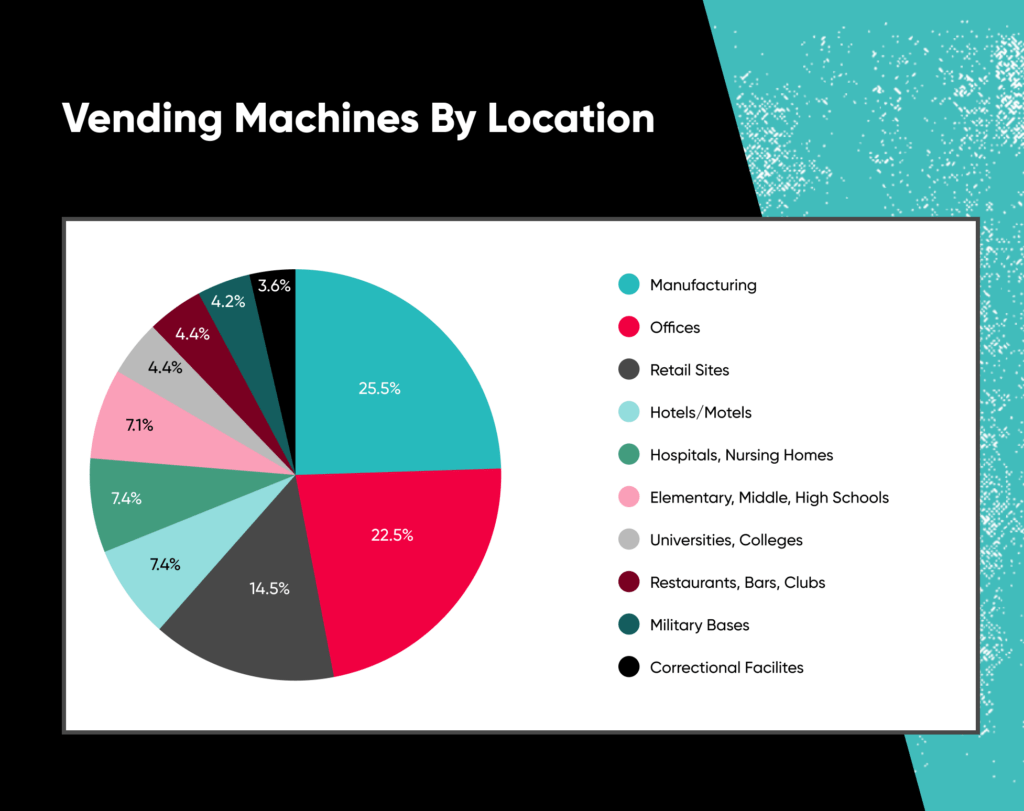
Location is everything for a vending machine business.
With no customers, some products might even go stale in food machines. Even with toy vending machines or soda vending machines, where your product has a longer staying power, you want enough foot traffic to lead to sales.
Start with a brainstorm: Where are some places you’ve been where it would have been convenient to buy something from a vending machine?
Some hot spots include:
- Gyms (think protein shakes and electrolytes, not candy and soda)
- Laundromats
- Places where people have to sit and wait for something (car dealership service areas, for example)
- Industrial parks and manufacturing facilities with lots of employees
- Apartment complexes
- Hospitals
- Office buildings
- Jails
- Assisted living facilities
- College dorms
- Retail stores
- Bus and train stations
- Tattoo parlors
- Malls
- Barbershops
Once you have some ideas, it’s time to research potential locations. Visit them in person and talk to the property owner or try cold calling if the proprietor isn’t on-site.
Location isn’t the only consideration, though. What you sell can be just as important.
If you want to carve out a niche for yourself, look for something that other vendors don’t provide. Cookies and chips are cliche, and that market may be oversaturated in your area.
But healthy, fresh, on-the-go food from a vending machine at an airport? Winner winner chicken dinner.
Check out how one Farmer’s Fridge vending machine cashes in to the tune of $527 an hour doing just that:
Farmer’s Fridge doesn’t franchise out, so you’re out of luck there. But they have the right idea when it comes to offering something different out of a vending machine.
Determining Your Startup Costs and Financing
If there’s one area where a vending machine business really shines, it’s the startup costs.
Park aside some money for a machine and an initial product load. A new machine will run you over $3K, but you can find used ones for under a grand.
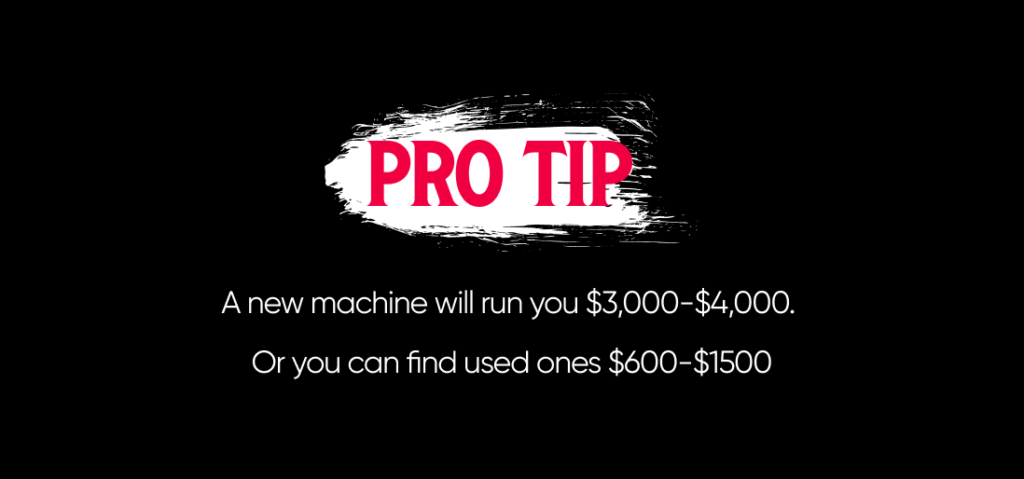
Then negotiate profit splits with the property owner where your machine will go.
You’ll need a credit card reader to maximize your income, too. Card readers will eat some of your profits in transaction fees, but they’re necessary in a world where people prefer to go cashless.
Find someone to help you install the machine and keep things stocked.
While you lay out your startup costs, don’t forget a vending machine license. Your state may require one. It’s also a smart idea to set up your business at this time, like forming a limited liability company (LLC) and applying for a business license and bank account.
Set aside some cash to get your vending machine’s insured. If your machine is outside 24/7, there’s no telling what could happen. You’ll want the coverage in case of any losses or damage.
Check out how Quinn started with just a few thousand dollars and brings in nearly $10k/month now:
The bigger or more complex your product, the more you’ll spend on startup costs. That’s especially true if you need a custom machine.
For your first few machines, keep it simple and low-cost.
Low startup costs mean you may already have the cash to get started in savings, through credit, or with personal loans.
Most people don’t turn to business loans or business credit cards for a vending machine side hustle, although you can if you want to.
You can buy a whole route from someone else by using seller financing. This type of arrangement allows you to buy the business by paying the old owner off over time through your profits.
Pro tip: you could even score free machines by signing exclusive product contracts with providers like Quinn did with Pepsi.
Sourcing Vending Machines and Products
By now, you’ve picked your potential products and locations. Now it’s time for you to find the right machine.
What you want to sell influences the size and type of your vending machine. For example, you’ll need a refrigerated machine if you want to sell cold drinks. You may need a special machine if you plan on selling bulky items like laundry supplies.
Craigslist can actually be a goldmine for used vending machines, but all that glitters is not gold. Don’t take on a clunker because it’s cheap, or else you’ll lose precious selling hours for maintenance downtime.
Other spots to look:
- Facebook Marketplace
- Vending.com
- Usedvending.com
- Discountvending.com
Let’s be real: when it comes to products, you can be as creative as you want.
You can buy chips and drinks at Costco and Sam’s Club. If you want something more upscale, you need partnerships with the businesses that have that inventory.
Most vending machine operators mark up products by at least 100%, but some push it to 300%.
Note: if you sell something like cupcakes or other perishable items, bear in mind that you need more consistent traffic and reloads than other items.
Speaking of cupcakes, here’s how Candace delivers baked goods at scale with vending machines:
Candace was able to expand her already successful bakery into cupcake ATMs.
You may not have a specialized product like this right away for your vending machine. But this just goes to show how wide open the vending machine industry is for innovation.
Here’s where buying someone else’s vending machine business has its first major advantage:
- You won’t need to source machines one-by-one
- You won’t need to figure out what products work in your market
The previous owner has already figured out what works. You just need to worry about keeping the route operational and stay on the lookout for expansion opportunities.
Securing Prime Locations and Negotiating with Property Owners
Pitch your vending machine as a value-add to a property owner.
If you’re the one taking care of it, that’s a hands-off convenience for them. It might also make for happier residents/clients/customers, so position this as something that benefits them and their business.
You’ll need to pay the property owner “rent” for the space. In most cases, you’ll pay a percentage of your monthly revenue as a commission. Property owners may also try to stick you with a portion of the electricity bills.
How much you’ll need to pay is up to your negotiations with the property owner.
Some people are able to get a low flat rate, while others are stuck with higher commissions. You can expect to pay about 10% to 25% in commissions.
This step is where there’s another huge advantage of buying a vending business instead of starting one.
The previous vending machine business owner already negotiated the agreements. They’ve already found locations that work. You’ll walk into a sweeter deal than scouting things out yourself.
Maintenance and Daily Operations
The biggest part of vending machine operations is keeping the machines stocked.
If you hire stockers and operators, you’ll remove yourself from the physical labor part of the equation. This makes the business as hands-off as it gets, but it eats into profits.
Most vending machine owners replace themselves with stockers over time as they grow their cash flow.
Use tools like VendSoft to keep track of when inventory’s running low so you can dispatch someone to the site.
Monitor each machine’s performance, too. You can always pull a poorly-performing machine and place it in a location where it can get more foot traffic or reach the right customers.
The operations side of a vending machine business is the part with the steepest learning curve. Cut the learning time down by buying a route.
The previous owner can teach you how their ops work, and you can look for ways to make them more efficient.
P.S. if you’re interested in a more hands-off variant of vending, check out our guide to starting an ice vending business. It follows a similar playbook, but you don’t need to worry as much about machine stockers.
Scaling and Expansion
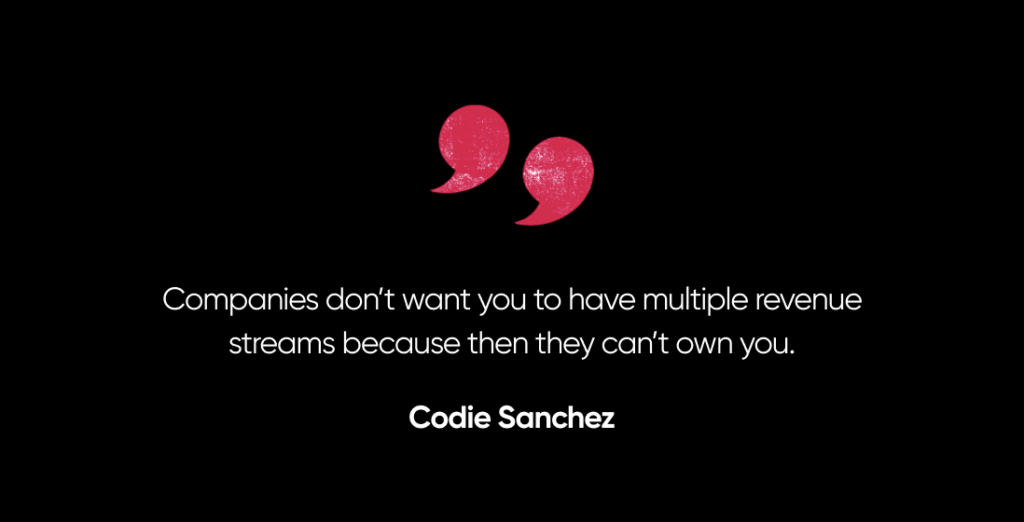
Owning a single vending machine creates some nice side hustle cash. But you need multiple placements if you want to exit your 9 to 5 or grow the biz.
With just one machine, you can learn the basics of inventory, pricing, and maintenance. Take those lessons and apply them to different types of vending machines or more of the same but in new locations.
Or, even better, buy a business with multiple machines, learn the ropes from the owner, and use the excess profits to fuel your growth.
Remember Cake Boss from TV? He gets it. He expanded into multiple locations selling cake slices through vending machines, building his brand and income along the way.
Making Moolah with Mini Grocery Stores
Vending machines make it too easy for people to buy things, especially when outfitted with a credit card reader.
If those same people are bored, hungry, or in a rush? Ka-ching!
If you score a solid used vending machine or partner with a company to get one for free, you could be up and running as quickly as you can secure your first location.
But you can unlock true scale by skipping the first location and opting to buy a multi-location vending business from the get-go.



